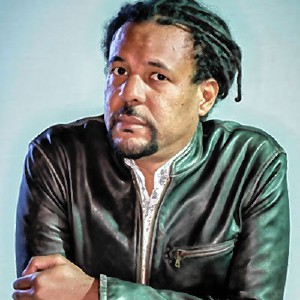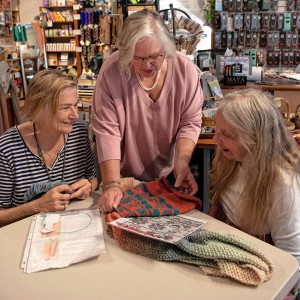Aid in dying supporters renew push, citing ‘shifts in the dynamics’
| Published: 06-14-2023 6:03 PM |
BOSTON — Supporters of allowing terminally ill patients to receive medication to end their lives continue to target Massachusetts as a “priority” state, more than a decade after voters here narrowly rejected a similar policy.
A long-running campaign to secure legislative approval for medical aid in dying has yet to win visible support from top Democrats in the House and Senate, and as backers gathered at the State House on Wednesday, they said Massachusetts remains a top focus while similar efforts unfold in other states.
“There are campaigns going on around the country in various states. Massachusetts has been ongoing as a priority since the 2012 ballot initiative, when it failed by a small margin, but there are other states,” Melissa Stacy, northeast regional advocacy manager for Compassion and Choices, told the News Service. “There’s been other states where we’re working on moving legislation forward, but Massachusetts, really, is seen as a beacon, particularly in the Northeast. With all of our health care here, this just seems to be a natural fit for the state.”
The coalition endorsing the latest legislative proposal (H 2246 / S 1331) convened what it described as its first in-person lobby day, bidding to bring more lawmakers on board with a bill that already has dozens of cosponsors.
Much of Wednesday’s event featured personal anecdotes driving support for the measure. Sen. William Brownsberger of Belmont said his late father made the legislation “his personal mission in the last decade or so of his life.” Sen. Su Moran of Falmouth said her father, too, “would have appreciated if this was passed.”
Article continues after...
Yesterday's Most Read Articles
 UMass graduation speaker Colson Whitehead pulls out over quashed campus protest
UMass graduation speaker Colson Whitehead pulls out over quashed campus protest
 ‘Knitting treasure’ of the Valley: Northampton Wools owner spreads passion for ancient pastime
‘Knitting treasure’ of the Valley: Northampton Wools owner spreads passion for ancient pastime
 More than 130 arrested at pro-Palestinian protest at UMass
More than 130 arrested at pro-Palestinian protest at UMass
 UMass student group declares no confidence in chancellor
UMass student group declares no confidence in chancellor
 South Hadley Town Meeting OK’s budget that lays off 24 school staff; nuisance bylaw tabled
South Hadley Town Meeting OK’s budget that lays off 24 school staff; nuisance bylaw tabled
 Host of road projects to begin Friday in Amherst
Host of road projects to begin Friday in Amherst
“It would have been a last kindness if he could have control when he most needed it,” she said.
And Rep. Jim O’Day of West Boylston, one of the proposal’s most vocal supporters, recalled his own father’s final days.
“He talked about getting a black pill or some kind of pill and giving it to him, or going so far as actually putting a pillowcase over his head,” O’Day said. “I said, ‘Dad, I love you to death, but I couldn’t do that.’ I just could not do that. And I think there’s probably a whole lot of people in this room right now, today, that have had similar conversations. No matter how much we love that loved one, that’s a tall order, folks.”
“This bill prevents anything like that from ever having to happen,” he added.
At one point, attendees viewed a video message from Massachusetts Death with Dignity board member David Rempell, who recorded himself advocating for the legislation a few weeks before he died in March.
“Right now, my biggest fear is not being able to control how I will die and when I will die,” Rempell said in the video. “I do not want to lie around in a coma or in great pain for many weeks or months because I have no control over bringing my life to an end. I have had a wonderful life. I would hate to end it on such a negative trend.”
A version of legislation to legalize medical aid in dying has been filed every two-year session since 2008, and Democrats who control the House and Senate have never brought it forward for a vote.
By a margin of 51-49 percent, voters in 2012 rejected a statewide ballot question that would have allowed licensed physicians to prescribe life-ending medication to a consenting terminally ill patient expected to die within six months.
At that point, only Oregon, Washington state and Montana had legalized medical aid in dying, either via ballot initiatives or the judicial process. In the 11 years since, seven other states plus Washington, D.C. have authorized the practice, with approval in all but Colorado occurring through legislation, according to Compassion and Choices.
The proposal has remained controversial, and opponents contend authorizing the policy will expose patients to coercion and abuse.
While a few dozen supporters gathered Wednesday in the State House’s Nurses Hall for their lobby day, a pair of apparent medical aid in dying opponents stood roughly 20 feet behind the podium, holding up handmade signs in objection.
“Protect disabled lives,” one sign read.
Supporters have pitched the current bill as a “much different” proposal than the version that failed at the ballot box, highlighting additional language such as a required evaluation by a mental health professional meant to safeguard against misuse of aid in dying.
Stacy said she does not believe the past failure poses a major obstacle to supporters today given that the ballot question was “over a decade ago.” The Massachusetts Medical Society opposed medical aid in dying when the idea went before voters in 2012, but in 2017 changed to a neutral position.
“There’s been a lot of shifts in the dynamics and the framework in Massachusetts,” Stacy said.
Backers also say they are optimistic the lift will be easier now that Gov. Maura Healey – who has voiced support for the concept of medical aid in dying with proper guardrails – is in the corner office.
Eighty-two of the Legislature’s 200 members have cosponsored either or both versions of the bill.
Other lawmakers who attended Wednesday’s event include Reps. Kate Donaghue, Sean Garballey, Mindy Domb, Ted Philips, Meghan Kilcoyne and Dylan Fernandes, and Sen. Jacob Oliveira.

 Northampton man held without bail in December shooting
Northampton man held without bail in December shooting Hadley eyes smart growth zoning district
Hadley eyes smart growth zoning district Hatfield Town Meeting to consider $1.4M for plant upgrades as part of 28-article warrant on Tuesday
Hatfield Town Meeting to consider $1.4M for plant upgrades as part of 28-article warrant on Tuesday  Extreme weather forces valley farmers to adapt
Extreme weather forces valley farmers to adapt
